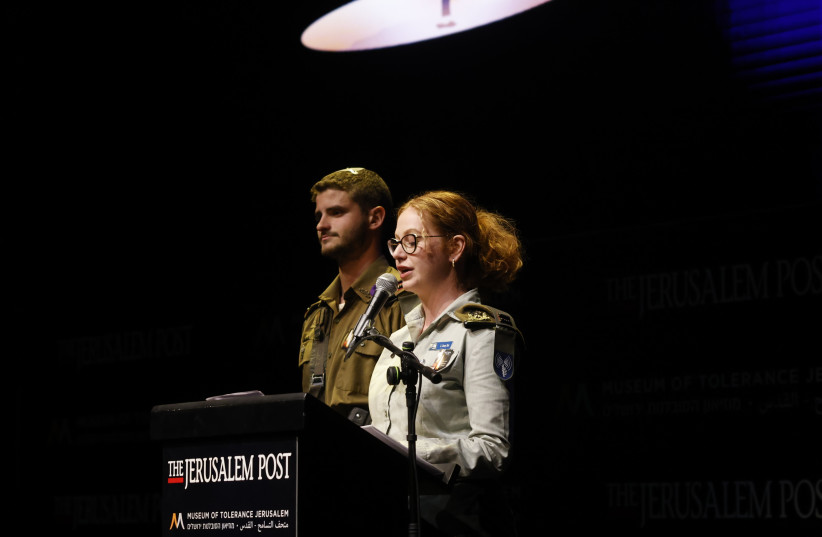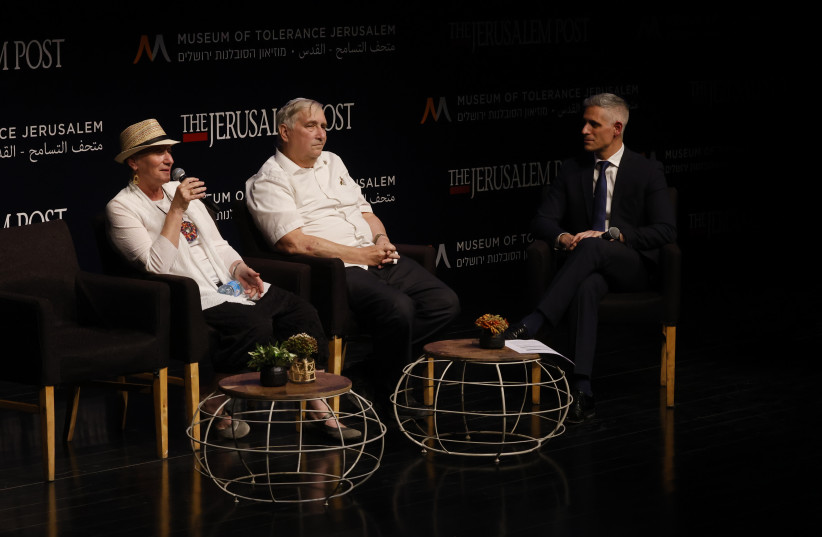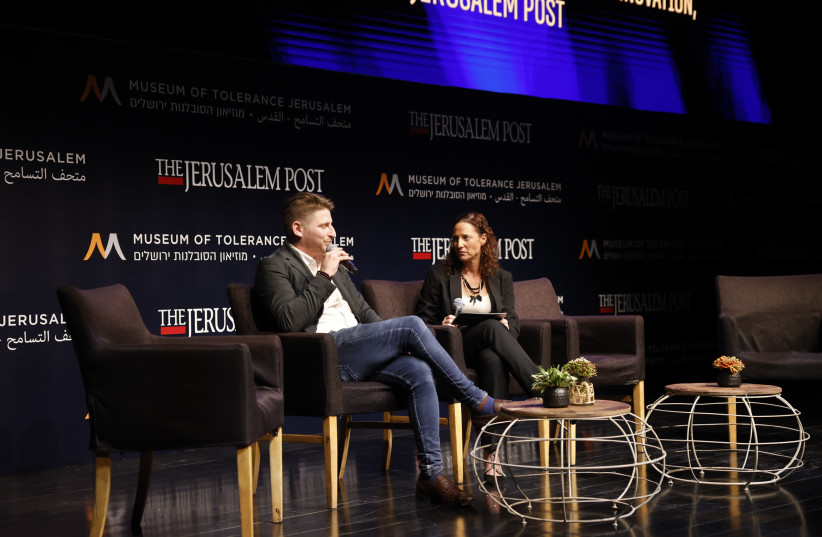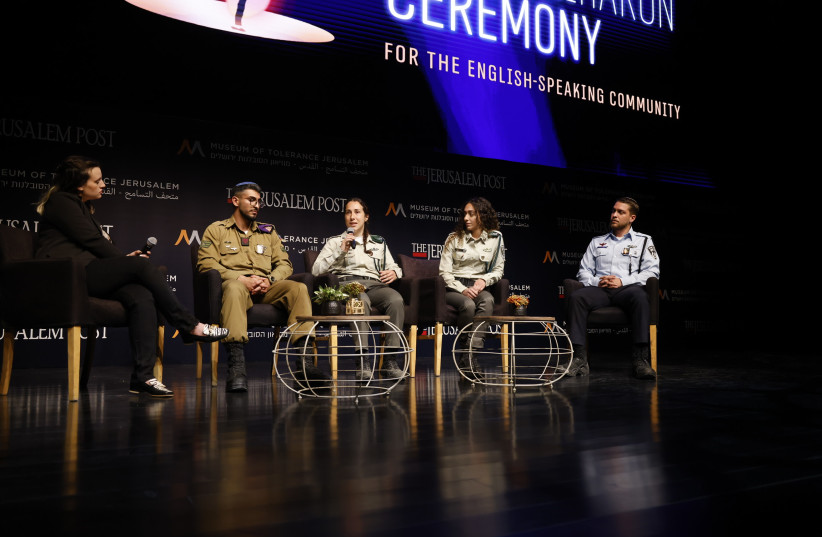Hundreds gathered at Jerusalem’s Museum of Tolerance on Monday evening for a special Yom Hazikaron ceremony for members of Israel’s English-speaking community, honoring fallen soldiers and victims of terror. The event, featuring families of fallen soldiers and lone soldiers from the US and Canada, was sponsored by The Jerusalem Post and the Museum of Tolerance.
The ceremony began with the sounding of the Remembrance Day siren at 8 p.m., officially opening the observance of Yom Hazikaron. After the lighting of memorial candles, hazan Netanel Olivisky chanted the El Maleh Rahamim memorial prayer.
In his introductory remarks, Avi Mayer, Editor-in-Chief of The Jerusalem Post, acknowledged the families who lost their loved ones protecting the State of Israel.
“Yom Hazikaron is possibly the most sacred of days in the Israeli calendar,” he said. “For twenty-four hours, we are all part of the families of grief. On Yom Hazikaron, we are united in our grief and remembrance.”
“For twenty-four hours, we are all part of the families of grief. On Yom Hazikaron, we are united in our grief and remembrance.”
Avi Mayer

Rabbi Marvin Hier, founder of the Museum of Tolerance Jerusalem, co-sponsor of the event, said, “Israelis don’t need to be told to remember. Every day is Yom Hazikaron for them.” Instead, he said, people need a reminder in their day of glory, when the enemy has been defeated.
Lt. Jonathan Samakh, a platoon commander in the 435th battalion in the Givati brigade, and Lt. Tammy Shur, head of the International Social Media Office in the IDF Spokesperson’s Unit, addressed the audience and explained the meaning that Yom Hazikaron holds for them. “We are here,” said Shur, “because they are not. We are standing on the shoulders of all those who sacrificed their lives, so that our people can live in peace and security. For that, we are forever indebted to them. A few moments ago, we all stood together as one heart, one mind and one soul to the chilling sound of the siren all across the country.”
Said Samakh, “Being a combat soldier in the IDF isn’t always the most attractive job. There are long days, tough training, and longing for your home and family. There are days when you doubt yourself and your place. But there comes a day each year that leaves no doubts – Yom Hazikaron. All of a sudden, everything makes sense. You understand what you are fighting for - and more importantly, for whom. You remember why so many people have lost their lives and why you put on your uniform each day.”
Mayer then interviewed Reena and Mark Robinson, who made aliyah from the US in 1979, and whose son Matanya was killed in Jenin in April 2002 in Operation Defensive Shield. “We are one,” said Mark Robinson, and the unity of the Jewish people is what makes this nation strong. We still have to know how to talk to one another.”
Maayan Hoffman, Deputy CEO of Strategy & Innovation, The Jerusalem Post, interviewed Tom Fried, a survivor of the Park Hotel Passover bombing in 2002.
On March 27, 2002, a Hamas suicide bomber entered the hotel on March 27 during the Seder and blew himself up, murdering 30 people and injuring 140 others.


Tom’s parents, Andrei Fried and Edith Fried, were among those murdered in the attack that led to Operation Defensive Shield. In response to Hoffman’s question as to how he managed to continue after the death of his parents, he responded, “Life is about surviving,” said Fried. “It’s a battle.”
Mayer then invited four lone soldiers to the stage – Sgt. Zehava Cohen, Master Sgt. Dean Elsdunne, Sgt. Chaya Eisenberg and Sgt. Natanel Amos – who were interviewed by Tamar Uriel-Beeri, Managing Editor of jpost.com.

Suzana Bobis Ziv then led the audience in singing songs of Remembrance Day, and the program concluded with the recitation of Kaddish by Mark and Reena Robinson, followed by the singing of rendition of "Hatikvah," led by hazan Netanel Olivisky.